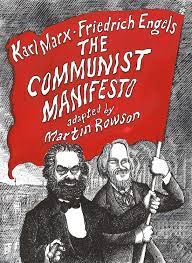Boyer’s The Historical Background of the Communist Manifesto
Mar 30, 2023
This paper discusses the works of Karl Marx and Friedrich Engels, who wrote the Communist Manifesto in 1848. It focuses on their historical background that informed their work, including such topics as the industrial revolution, capitalism, feudalism, and socialism.
Boyer begins by discussing how the industrial revolution impacted society in Europe during this time period. He explains how it changed production methods as well as introducing new tools to create different products more efficiently than ever before. This led to a rise in economic power for certain groups of people, while others were left with little or no means of earning an income. The unequal power dynamics caused great unrest among those individuals affected negatively by these changes and influenced Marx and Engels’ writing of the Communist Manifesto.

Next, Boyer outlines the philosophical and economic perspectives of capitalism that informed Marx and Engels’ writing. He explains how capitalists saw labor as a commodity to be bought and sold on the market, which laid the foundation for exploitation of workers. Capitalists also believed in private property ownership to maximize profits and competition between companies to push down product costs. This meant that workers were often forced into working in unsafe conditions for little pay with no benefits or job security.
Finally, Boyer examines the historical context around feudalism, socialism, and communism in relation to Karl Marx's writing. Feudalism was an economic system based on land ownership by wealthy landowners who enslaved peasants in exchange for their labor. Socialism is a political-economic system where the government holds the ownership of production and distribution. Communism, as outlined by Marx in the Communist Manifesto, is a stateless society with collective ownership of property and resources in pursuit of equality among citizens. He argued that through revolution, this system could be attained to liberate people from oppression and exploitation of capitalism.
